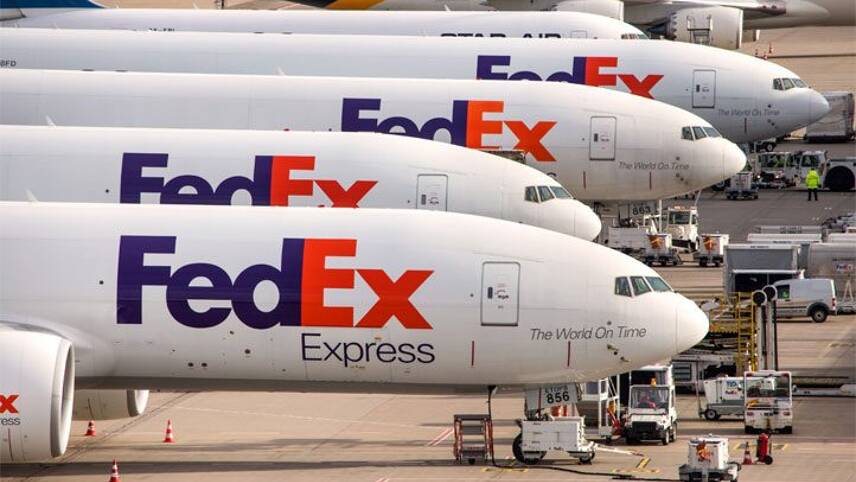Register for free and continue reading
Join our growing army of changemakers and get unlimited access to our premium content

FedEx operates more than 600 aircraft and 84
In a statement released today (3 March), FedEx revealed plans to spend $2bn on the low-carbon transition, splitting funding across vehicle electrification, sustainable energy and nature-based carbon sequestration.
On vehicle electrification, FedEx will transition its global parcel pickup and delivery fleet to fully electric vehicles (EVs) and other zero-emission vehicles by 2040. It will ensure that EVs account for at least half of global fleet vehicle purchases by 2025 and 100% of purchases by 2030. The firm operates more than 84,000 vehicles globally.
On sustainable energy, FedEx’s main energy consumption challenges are aircraft, road transport and operational facilities like depots and offices. The firm is planning to invest in alternative fuels for aviation while improving the efficiency of aircraft. Since 2012, it has reduced emissions from aviation by a cumulative total of 13.5 million tonnes in this way. FedEx is notably the world’s largest cargo air fleet operator with more than 650 planes.
FedEx has stopped short of requiring all electricity for facilities becoming renewable. It has said it will make “continued investments” in energy efficiency and renewable energy procurement.
The third and final focus area for FedEx’s new climate plan is nature-based carbon sequestration. The firm has pledged $100m to Yale University to help it establish the US’s Center for Natural Carbon Capture – a facility that will accelerate research into how best to maximise the carbon sequestration potential of natural landscapes.
“Researchers will develop methods that build on natural carbon storage systems, including biological ecosystems and the geological carbon cycle, improving, where possible, how quickly carbon can be absorbed, how much can be contained and how long it can be stored,” FedEx said in a statement. The business has confirmed that it will only use sequestration to offset emissions from aviation, as this is the hardest-to-abate part of its operations.
FedEx’s chief sustainability officer Mitch Jackson said the new steps “will contribute a positive impact for generations to come.”
“While we’ve made great strides in reducing our environmental impact, we have to do more. The long-term health of our industry is directly linked to the health of the planet, but this effort is about more than the bottom line – it’s the right thing to do.”
FedEx blog
FedEx Express Europe’s senior vice-president of ground operations, Trevor Hoyle, penned a blog for edie last year, outlining how businesses operating within cities can collaborate on shared challenges like the net-zero transition. You can read that blog in full here.
Sarah George


Please login or Register to leave a comment.